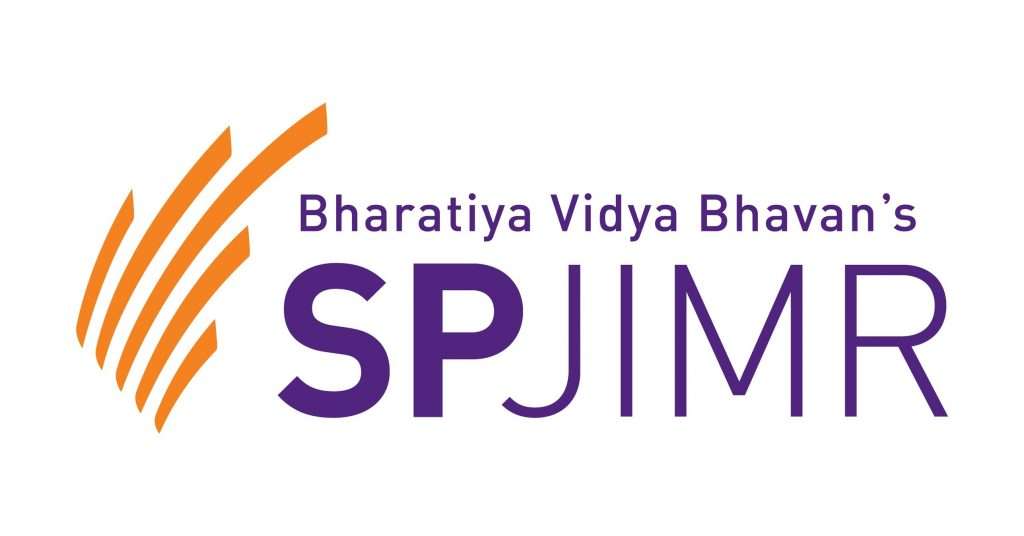
- Top 10 Private MBA Colleges in India: A Detailed Guide
- Indian School of Business (ISB), Hyderabad & Mohali
- XLRI – Xavier School of Management, Jamshedpur
- SP Jain Institute of Management and Research (SPJIMR), Mumbai
- Management Development Institute (MDI), Gurgaon
- Symbiosis Institute of Business Management (SIBM), Pune
- Narsee Monjee Institute of Management Studies (NMIMS), Mumbai
- Institute of Management Technology (IMT), Ghaziabad
- Great Lakes Institute of Management, Chennai
- T.A. Pai Management Institute (TAPMI), Manipal
- ICFAI Business School (IBS), Hyderabad
- Conclusion
Top 10 Private MBA Colleges in India: A Detailed Guide
India is home to several prestigious private MBA institutions that have carved out a niche in the global business education landscape.These schools offer cutting-edge programs, strong industry links, and promising career outcomes, making them top choices for aspirants aiming for managerial roles in various sectors. Below is a comprehensive guide to the top ranking MBA colleges in India, complete with academic details, admission criteria, placement statistics, and unique features.

Indian School of Business (ISB), Hyderabad & Mohali
- The Indian School of Business (ISB) is one of India’s most globally recognized business, with campuses in Hyderabad and Mohali.
- Established in 2001, ISB’s flagship one-year Post Graduate Programme in Management (PGP) is designed for professionals with significant work experience.
- The school also offers programs like PGPMAX (for senior executives) and PGPpro (for mid-career professionals). Admissions are based on GMAT or GRE scores, followed by evaluation of work experience, academic credentials, and essays.
- ISB partners with global schools like Wharton and Kellogg, which enhances its curriculum and brand value.
- ISB consistently records exceptional placement figures, with average salaries exceeding ₹30 LPA. Top consulting firms, investment banks, tech giants, and MNCs recruit from ISB.
- What sets ISB apart is its international faculty, world-class infrastructure, entrepreneurial culture, and a strong focus on leadership development.
- Its alumni network is spread across more than 50 countries, making it a global institution rooted in Indian excellence.
XLRI – Xavier School of Management, Jamshedpur
XLRI Jamshedpur, established in 1949, is one of the oldest and most prestigious Top ranking business in India. It has a rich legacy of promoting ethical and socially responsible leadership. XLRI offers flagship programs such as PGDM in Business Management (BM) and Human Resource Management (HRM), alongside executive education and FPM (doctoral programs). Admissions are based on the XAT (Xavier Aptitude Test), followed by personal interviews and academic evaluation. The institute’s HRM program is considered the best in India, often the first choice for aspirants looking to specialize in human resources. XLRI maintains a robust placement record with an average salary package of ₹30 LPA. Leading companies in consulting, finance, and FMCG sectors visit the campus for recruitment. With a strong emphasis on ethics, sustainability, and social innovation, XLRI equips students with more than just technical skills it nurtures future leaders with purpose.
To Explore PMP in Depth, Check Out Our Comprehensive PMP Certification Training To Gain Insights From Our Experts!
SP Jain Institute of Management and Research (SPJIMR), Mumbai
- SPJIMR Mumbai is known for its unique pedagogical approaches and commitment to values-based leadership.
- Founded in 1981, SPJIMR is a part of the Bharatiya Vidya Bhavan group and offers PGDM (two-year), PGPM (for experienced professionals), GMP (Global Management Programme), and family-managed business programs.
- Admissions are based on CAT/XAT/GMAT scores, but the institute emphasizes profile-based shortlisting to evaluate a candidate’s overall potential.
- SPJIMR adopts an “Autumn Internship” model, where students undergo internships before final specialization, helping them make more informed career choices.
- The institute maintains excellent placement records, with average CTCs ranging from ₹30–32 LPA.
- Recruiters span across sectors such as consulting, BFSI, FMCG, and tech.
- SPJIMR stands out with its focus on experiential learning, social impact projects, global immersion, and strong mentorship programs, making it a favorite among both students and recruiters.

Management Development Institute (MDI), Gurgaon
Located in Gurgaon, one of India’s Top ranking corporate hubs, MDI is a renowned B-school known for academic rigor and corporate collaboration. Established in 1973, MDI offers PGDM in General Management, Human Resource Management (HRM), and International Business. It also provides Executive MBA and doctoral programs. Admission is primarily through CAT scores, followed by GD and PI rounds. MDI consistently ranks among the top 10 B-schools in India, with average salary packages around ₹27–28 LPA. The institute is especially popular among consulting and marketing recruiters. MDI’s dual-degree collaborations with ESCP Europe and other global institutes enhance the international exposure of its students. With a sprawling campus, experienced faculty, and an extensive alumni network, MDI Gurgaon prepares its students for leadership in dynamic business environments.
Symbiosis Institute of Business Management (SIBM), Pune
- SIBM Pune is the flagship institute of Symbiosis International (Deemed University) and is known for its high academic standards and vibrant campus life.
- The two-year MBA program offers specializations in Marketing, Finance, Operations, and Human Resources.
- The institute also offers MBA in Innovation & Entrepreneurship and an Executive MBA program.
- Admissions are based on the SNAP test, followed by group exercises, written ability tests, and personal interviews.
- SIBM Pune is known for excellent placement records, with top recruiters from IT, consulting, FMCG, and BFSI sectors offering roles with average CTCs around ₹25 LPA.
- The institute emphasizes peer learning, student-driven governance, and leadership development. A lush green campus, active student clubs, and numerous live projects make learning at SIBM a holistic experience.
- IMT Ghaziabad, founded in 1980, is another leading private MBA institution with a strong legacy in business education.
- It offers PGDM programs in General Management, Marketing, Finance, and Operations, as well as a unique Dual Country Program (DCP) involving exposure to global business environments.
- The admission process is based on CAT, XAT, and GMAT scores, followed by interviews. IMT has carved a niche in marketing and analytics, with an average package of ₹17–19 LPA.
- The institute is known for its innovation, industry partnerships, and active student engagement.
- Global immersion, corporate mentorships, and simulation-based learning make IMT a dynamic space for future managers.
- TAPMI, part of the Manipal Academy of Higher Education, is one of the few Indian B-schools with AACSB accreditation.
- Established in 1980, it offers PGDM programs in General Management, Banking & Financial Services, HR, and Healthcare.
- Admission is based on CAT, XAT, GMAT, or NMAT scores, followed by interviews and profile evaluations.
- With a focus on academic discipline, TAPMI offers practical learning through its Bloomberg Lab, live projects, and simulations.
- The institute has strong placement statistics with average packages around ₹14–16 LPA.
- TAPMI promotes a strong culture of collaboration and leadership development, preparing students for industry-ready roles in various sectors.
Are You Interested in Learning More About PMP? Sign Up For Our PMP Certification Training Today!
Narsee Monjee Institute of Management Studies (NMIMS), Mumbai
NMIMS Mumbai is a well-established private university that has developed a strong reputation for its School of Business. The institute offers a variety of MBA programs including General MBA, MBA HR, MBA in Pharmaceutical Management, and Executive MBA programs. Admissions are done through NMAT by GMAC, with further rounds comprising group discussions and personal interviews. Located in Mumbai, India’s financial capital, NMIMS benefits from proximity to industry. The average placement package is ₹18–20 LPA with top recruiters in finance, pharma, analytics, and consulting. With excellent infrastructure, diverse programs, and a growing alumni base, NMIMS has become a popular choice for MBA aspirants across India.
Are You Preparing for PMP Jobs? Check Out ACTE’s Project Management Interview Questions & Answer to Boost Your Preparation!
Institute of Management Technology (IMT), Ghaziabad
Great Lakes Institute of Management, Chennai
Founded by renowned academician Dr. Bala Balachandran in 2004, Great Lakes Institute of Management has quickly emerged as a major player in Indian business education. The one-year PGPM is tailored for professionals with work experience, while the two-year PGDM is for fresh graduates and early-career professionals. Admissions are based on CAT, XAT, GMAT, or CMAT scores and profile evaluation. Great Lakes has a strong curriculum focused on analytics, artificial intelligence, and digital transformation. The average salary package ranges from ₹15–17 LPA, with top recruiters from IT, consulting, BFSI, and e-commerce. The institute also offers the LEAD (Leadership Experiential Action Development) program, focusing on holistic leadership training. Visiting faculty from global B-schools enrich the academic experience.
T.A. Pai Management Institute (TAPMI), Manipal
ICFAI Business School (IBS), Hyderabad
ICFAI Business School (IBS), Hyderabad is the flagship campus of the ICFAI group and has established a reputation for its expansive elective offerings and case-based teaching methodology. The two-year MBA program offers specialization in areas such as Marketing, Finance, HR, and Analytics. Admission is primarily through the IBSAT exam, but scores from CAT, GMAT, and NMAT are also accepted. The institute provides a large-scale academic setup, with one of the highest student intakes among private B-schools. Despite its scale, IBS maintains quality placements with top recruiters offering average salaries of ₹8–10 LPA. The institution also emphasizes entrepreneurship and research, making it a well-rounded choice for aspirants with varied interests.
Are You Considering Pursuing a Master’s Degree in PMP? Enroll in the PMP Masters Program Training Course Today!
Conclusion
India’s top 10 private MBA colleges in india offer diverse opportunities tailored to different student profiles fresh graduates, working professionals, and experienced leaders. Whether it’s ISB’s global exposure and leadership programs, XLRI’s ethical grounding and HR expertise, SPJIMR’s innovation-driven curriculum, or TAPMI’s Bloomberg Lab enabled learning, each school brings something unique to the table. These institutions consistently deliver excellent placements, foster entrepreneurial thinking, and promote a global outlook. When choosing an MBA college, aspirants should consider factors such as program structure, location, specializations, ROI, pedagogy, faculty, and industry interface. The right choice can set the foundation for a successful and fulfilling career in management. Private B-schools in India are not just alternatives to IIMs they are powerful brands in their own right, producing industry leaders, entrepreneurs, and changemakers.





